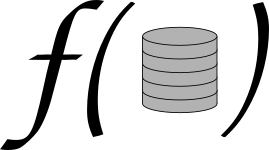Welcome to databasetheory.org, your friendly stop over for all things database-theoretical :)
Aim of this site
This site is one of the many initiatives that are coming out of a Dagstuhl Perspectives Workshop on the Foundations of Data Management and is to collect
- resources, including
- DB theory conference info (ICDT,PODS)
- Info on Ron Fagin event (held at PODS 2016)
- Links to textbooks.
- events, listing upcoming conferences, workshops, etc.
- job announcements.
It also features a blog, currently hosted by Jan Van den Bussche, and surveys that appeared in the Sigmod Record Database Principles Column.
We want this site to be the place to be for anything related to the principles of data management and for this we need your help. For any suggestions and content to be added please send an email to info@databasetheory.org. If you are interested in blogging on principles of data management, please register for an account.
What is this site about?
The research area on the principles of data management has its roots in database theory in which, as the name suggests, theoretical aspects of database management systems are studied.
In the early years (1970 and onwards) the main focus of the area was on the study of the relational database model and associated query languages. Indeed, Edgar F. Codd's work made it possible to apply and develop new mathematical techniques in logic, finite model theory, formal languages, complexity theory and algorithms, for the investigation of data model design (dependency theory) and the expressiveness and complexity of query languages and their evaluation, just to name a few.
In later years, exciting new research directions have continued to emerge related to data integration, data exchange, distributed query processing and many more. Furthermore, motivated by practical needs, other kinds of data such as incomplete and probabilistic data, tree-structured and graph data have been considered, hereby opening up the field to "data management" in a broad sense. As the field matures, it keeps reaching out to other disciplines such as machine learning and knowledge representation, and continues to influence adjacent areas in computer science.
For gaining an in-depth knowledge of the area we refer the reader to the Links page for references to text books and to information regarding the two main conferences in this area: the ACM Symposium on Principles of Database Systems (PODS) and the International Conference on Database Theory (ICDT).
